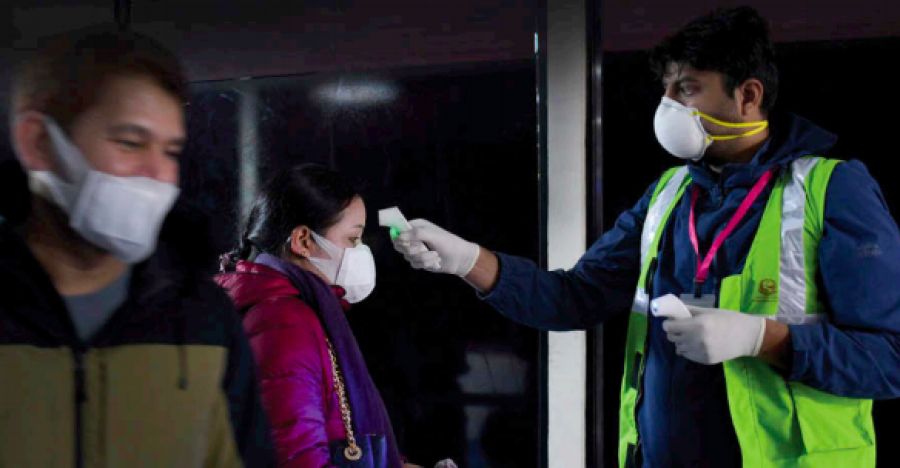National
Restrictions on testing and focus on returnees from abroad don’t contain Covid-19, say experts
They say active surveillance and testing of all symptomatic patients are necessary to flatten the curve and stop coronavirus from spreading in the community.
Arjun Poudel
A 30-year-old man from Rautahat who died on Saturday night while receiving treatment at the Lalitpur-based Star Hospital tested positive to Covid-19. Although the man died on Saturday night, the report for his Covid-19 polymerase chain reaction test came in only on Monday morning.
Although the man had been receiving treatment for lung ailments, he wasn’t tested for coronavirus until he died as his symptoms did not match the list issued by the Ministry of Health. Only patients whose symptoms match those on the list can be tested.
"These days, it’s not easy to test patients that show one or two symptoms of Covid-19," said Dr Anup Subedee, infectious disease consultant. "Even if the patients come from Covid-19 hotspots, they can’t be tested until their symptoms match the list of symptoms published by the Ministry of Health."
The Ministry of Health and Population has emphasised that hospitals strictly adhere to the list before sending swab samples to the labs to avoid “wasting valuable resources.” Officials have issued two statements in one week warning hospitals not to collect swabs of patients for polymerase chain reaction tests if their symptoms do not match those listed by the ministry.
One of the statements says that the hospital concerned will have to foot the bill for viral transport media and the test if samples were found to have been collected from patients that did not show symptoms of Covid-19 listed by the ministry.
Doctors say that even body aches and diarrhea are some of the symptoms of Covid-19. If patients are from a Covid-19 hotspot, they are more likely to have been infected with the coronavirus. But aches and diarrhea are not “sufficient” symptoms to qualify a patient for a Covid-19 test. The patient should also run high fever, according to doctors.
The strict government guidelines are being enforced at a time when numerous cases have been reported among people who don’t have a travel history or haven’t come into contact with an infected person. Even people who have received surgery at hospitals have contracted the virus.
However, authorities concerned are still focusing on people returning from abroad and those staying in quarantines. The strategy hasn’t changed from the initial stages of the lockdown, even as infections have been reported among people of all 77 districts across the country.
"Restriction on tests could lead to the spreading of the disease in the community,"said Subedee. “Several instances show that the disease has reached the community and people are contracting the disease even without a travel history. “
Public health experts say that the government has not learned anything from its own or other's mistakes. They said that the epidemic could go out of control if the government continues to focus only on people who have returned from abroad.
"Had we quarantined, isolated, tested, and traced properly, the disease would not have reached the community," said Dr Baburam Marasini, former director at the Epidemiology and Disease Control Division. "Now the disease has reached the community and we are still focussing on the people returning from abroad."
The Ministry of Health announces a number of positive cases everyday based on results for samples lying around for several days, enough for cases to rise exponentially.
Some doctors are even saying that testing symptomatic cases only is also not an option now. Dr Sher Bahadur Pun, chief of clinical research unit at the Sukraraj Tropical and Infectious Disease Hospital, said that most of the confirmed Covid-19 cases are asymptomatic. “Asking doctors to collect samples only from those that exhibit the full range of symptoms is a mistake”.
Pun said that the government should focus on active surveillance , testing, and isolating. “This is the only way to contain the community spread of the disease and flatten the curve.”
He suggested that teachers, college students and members of local clubs could be mobilised for the job, as other countries have done.
Subedee said, “We should leverage our strength—our human resources by mobilising more people in contact tracing and managing quarantine centres. We can do this far better than the way its happening now," he added.




 18.12°C Kathmandu
18.12°C Kathmandu














